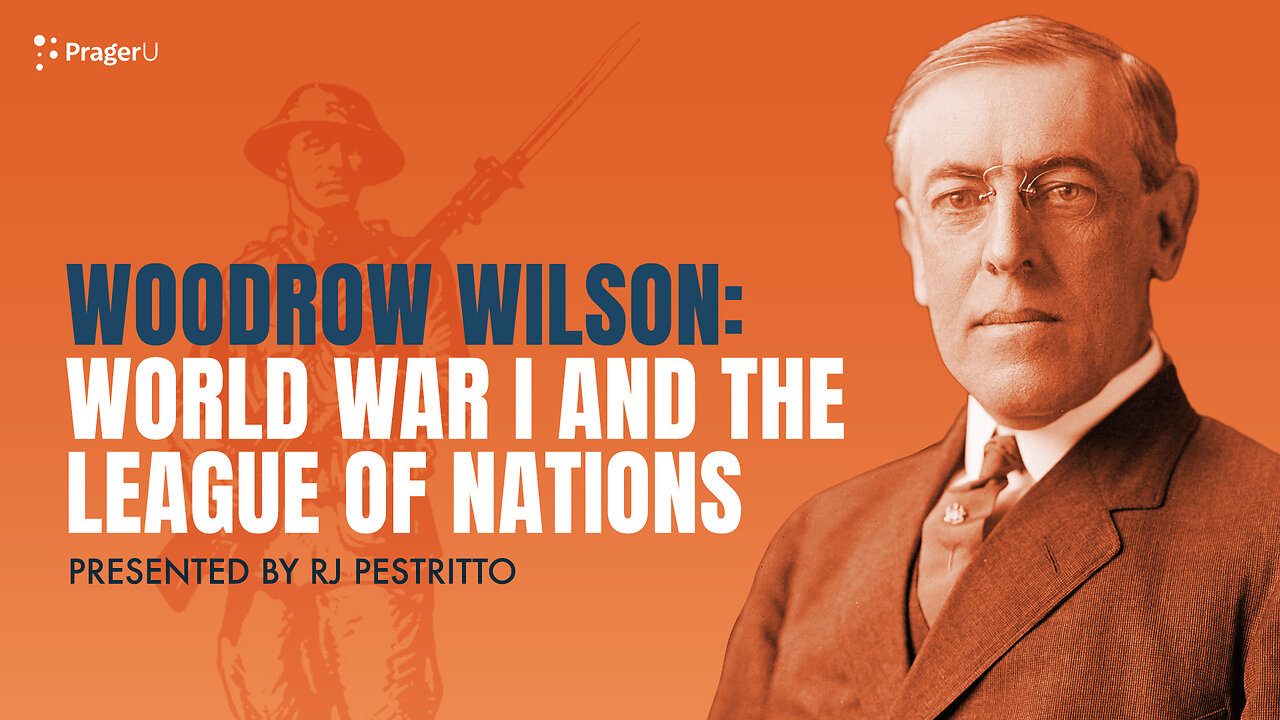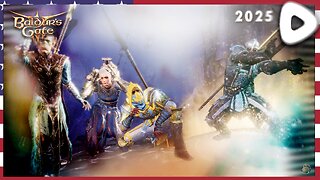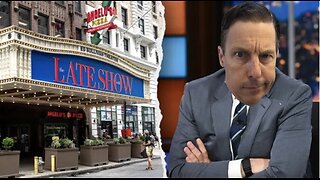Premium Only Content

Woodrow Wilson: World War I and the League of Nations | 5 Minute Video
In his first term as president, Woodrow Wilson sought to transform America. In his second term, he sought to transform the world. RJ Pestritto, professor of politics at Hillsdale College, describes how this once-obscure academic became one of America’s most influential presidents.
📲 Download the FREE PragerU app: https://prageru.onelink.me/3bas/vgyxvm79
Script:
For over a hundred years, the United States of America had relied on the genius of individuals to solve problems. It was often chaotic but incredibly productive, leading to the greatest economic expansion in world history.
For Woodrow Wilson, the 28th president of the United States, the time had come to bring order to that chaos. That would mean less freedom for the individual, but, at least in theory, more equality across society.
It was an exchange that perfectly fit into his progressive worldview: that the government should be active in every aspect of American life.
In a remarkable first term, Wilson laid the groundwork for this transformation of America.
In his second term, Wilson sought to transform the world.
The First World War — 1914 to 1918 — gave him the opportunity.
Initially, Wilson did everything he could to keep the nation out of that war. In fact, the reason he won his re-election in 1916 was his promise not to send American boys to fight on another continent.
But within two years, over two million Americans would be on that continent. Over a hundred thousand would die.
German aggression, specifically its submarine warfare that killed hundreds of Americans, made it very difficult for Wilson to keep the nation out of the war.
The final straw was the infamous “Zimmermann Telegram” in which the German government promised to help Mexico reclaim much of the Southwest if Mexico would stir up trouble along the Rio Grande.
On April 2, 1917, Wilson asked for a declaration of war. Congress gave it to him four days later.
If Wilson believed the government was supreme during peacetime, how much more so during wartime? To supercharge the war effort, Wilson essentially took control of the US economy. He nationalized whole industries, rationed food and fuel, fixed prices, and raised the top income tax rate to 77%.
Civil liberties were severely curtailed. Criticism of the war was essentially forbidden. Violators were imprisoned under the Espionage and Sedition Acts of 1917 and 1918. German composers like Bach and Beethoven were banned, teaching the German language in schools was prohibited, and sauerkraut was renamed “liberty cabbage.”
To his credit, Wilson left the prosecution of the war to his generals, and America did indeed turn the tide in favor of the Allies.
On November 11, 1918, the Germans, unable to counter America’s economic and military might, agreed to stop fighting.
Peace was at hand.
But what would that peace look like?
As always, Wilson had a vision. He called it the Fourteen Points.
The key point was the creation of an international League of Nations.
Wilson was so committed to this idea that he decided to go to Europe personally and negotiate the peace agreement. Europeans greeted him as a conquering hero, lining the streets wherever he went.
Wilson’s impulse was to give Germany generous peace terms. He wanted what he called “peace without victory.” But the French and British saw things much differently. Having suffered so grievously, they wanted Germany severely punished.
Wilson thought that was a terrible mistake, but eventually yielded. It was a price he was willing to pay to get the Allies to agree to his League of Nations.
But while Wilson had sold the League to the Europeans, he couldn’t sell it to Congress.
Republicans and even some Democrats were leery that the League required member nations to counter “external aggression” against “all members.” They feared this could lead to endless American involvement in foreign wars.
Wilson brushed aside their concerns and took his case directly to the American people, convinced that once they understood it, they would embrace it. The speaking tour took everything Wilson had and more.
On October 2, 1919, he suffered a massive stroke, rendering him partially paralyzed.
See the rest: https://l.prageru.com/4aFRYnT
Subscribe to PragerU Kids ➡️ (https://www.youtube.com/@PragerUKids)
Subscribe to Real Talk with Marissa Streit ➡️ (https://www.youtube.com/@realtalkwith...)
Subscribe to PragerU Shorts ➡️ (https://www.youtube.com/@PragerUShorts)
Follow PragerU on social media!
Instagram ➡️ (https://www.instagram.com/prageru/)
Twitter ➡️ (https://twitter.com/prageru)
Facebook ➡️ (https://www.facebook.com/prageru/)
-
 13:19
13:19
PragerU
3 days agoDennis Prager Health Update: July 2025
4.95K12 -
 1:07:58
1:07:58
Sarah Westall
2 hours agoThe Discipline of Remote Viewing: Shroud of Turin, Surface of Mars & the Unknown w/ Daz Smith & Team
20.9K3 -
 17:37
17:37
Colion Noir
4 hours agoGavin Newsom Gifted A Gun On Shawn Ryan Podcast, Claims He's Not Anti-Gun
24.7K32 -
 LIVE
LIVE
yellow_1ron
2 hours agoALAN WAKE 2 | SCARY GAME TIME | JOIN!
18 watching -
 LIVE
LIVE
OhHiMark1776
5 hours ago🟢 07-20-25 ||||| Baldur's Gate 3 with the Skwaaa ||||| Baldur's Gate 3 (2023)
48 watching -
 31:37
31:37
The Rad Factory
1 day ago $13.21 earnedTesting $300 Amazon Supercharger: Will It Blow??
48K13 -
 22:02
22:02
Mrgunsngear
21 hours ago $11.65 earnedHeckler & Koch Full Size VP9A1 F Review: The Best Striker Fired Duty Handgun?
41.3K20 -
 1:25:18
1:25:18
Jeff Ahern
5 hours ago $7.44 earnedThe Sunday Show with Jeff Ahern
32.3K7 -
 LIVE
LIVE
Spartan
5 hours agoSpartan - Pro Halo Player for OMiT | Scrims vs C9 then ranked
135 watching -
 6:49:01
6:49:01
Gore TV
7 hours ago🔥💥 MY GUN BROKE MID-FIGHT?! 🤯💣 | Division 2 Chaos with a Toy Rifle 😂🔫
31.9K1